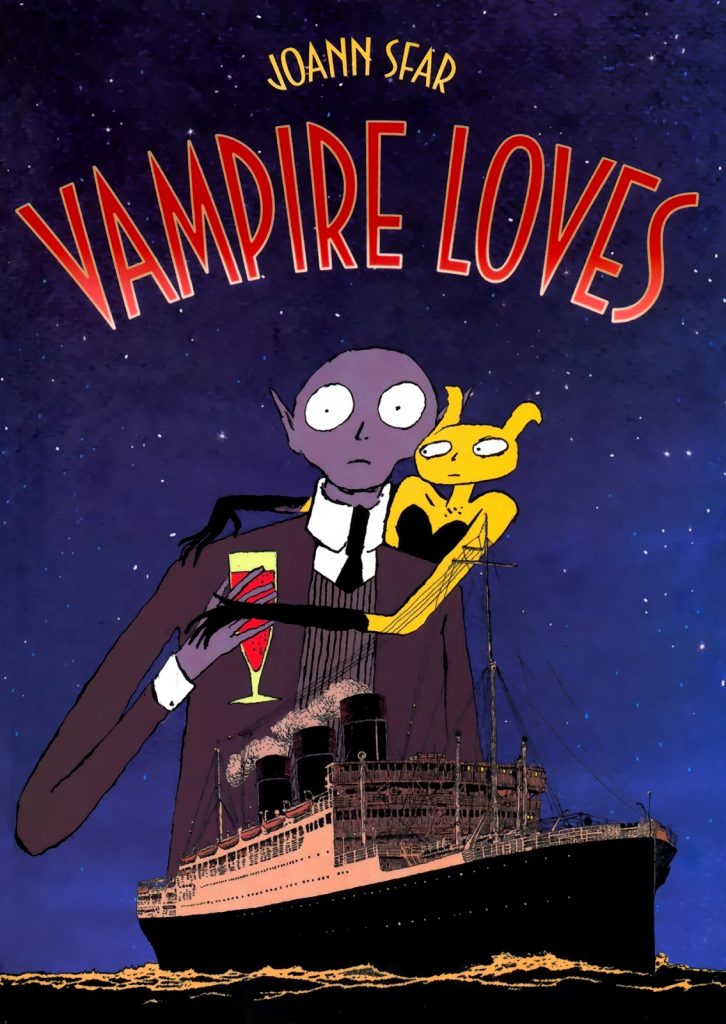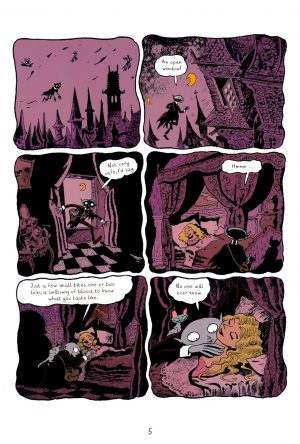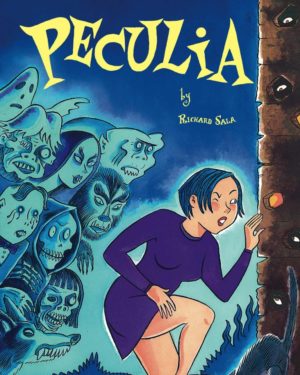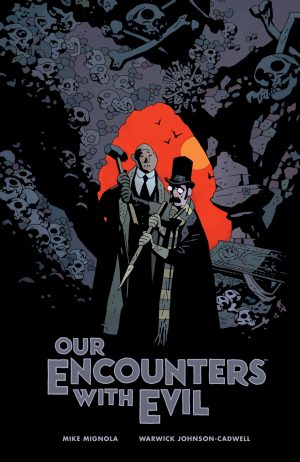Review by Ian Keogh
As vampires go, Ferdinand is about the most timid of them all. He just wants a quiet life in his remote castle with his cat. Sure, it would be preferable if Lani, the girlfriend who cheated on him, would see the error of her ways, but he’ll live with the hand he’s dealt. That hand takes a wild and unpredictable turn when he meets Aspirine, who takes an unaccountable fancy to the vampire so cautious he only sucks the blood of humans via a single tooth, so that when they wake it seems to be a mosquito bite.
It seems as if Joann Sfar is updating the old Hollywood idea of a shy person coaxed out of their shell via a series of wild and unpredictable events initiated by a riotous companion who throws caution to the wind. There’s an element of that at the beginning, but Sfar rapidly pulls away from the familiar to introduce some wonder, while not quite aimed at an all-ages audience due to the sophisticated humour. There’s a sense that he’s plotting as he goes along, as there’s a jerkiness to transitions, but the compensation is the constant freshness supplied by the frequent introduction of new personalities and situations.
Sfar is a very relaxed and unconfined storyteller. Vampire Loves combines the first four volumes of a series that ran to six books in the original French editions, and each book channels a different mood, while Ferdinand’s character remains essentially the same. The second story is more of an ensemble piece, far more reflective than the comedy of the first, and makes a greater exploration of the supernatural world while introducing the idea that women find the awkward Ferdinand irresistible. Apart from Lani, of course. It also definitively moves the series into adult territory, not just with regard to sexual matters, but with the greater introspection.
By the third story, which takes place before the second, Sfar’s incorporating all kinds of other supernatural entities as he concentrates on Ferdinand’s poor record with women. It rambles, although, as ever, Sfar’s quirky cartooning hits the right spot.
While consistently creative, Sfar’s narrative wanderlust is both a creative strength and weakness. It keeps the stories fresh and interesting, but at the cost of exploring equally interesting, but more traditional routes. There’s a sense of Sfar being easily bored, and if it requires bending parameters to satisfy his mood, that’s what happens. For all that, the fourth story is the best since the opener, Ferdinand’s love life taking a back seat as he’s coerced into investigating a series of murders the police can’t solve. Sfar keeps the focus on Ferdinand, removes his conscience, sets a great spooky atmosphere and develops a love story around chess playing automatons.
Although not essential to know for enjoyment, Sfar cleverly references some of his other work. He ties Ferdinand into his Little Vampire series, and the third story features a character from The Professor’s Daughter. Although he almost ignores Aspirine after the first story, he’d later revisit her in three graphic novels not yet translated into English.





